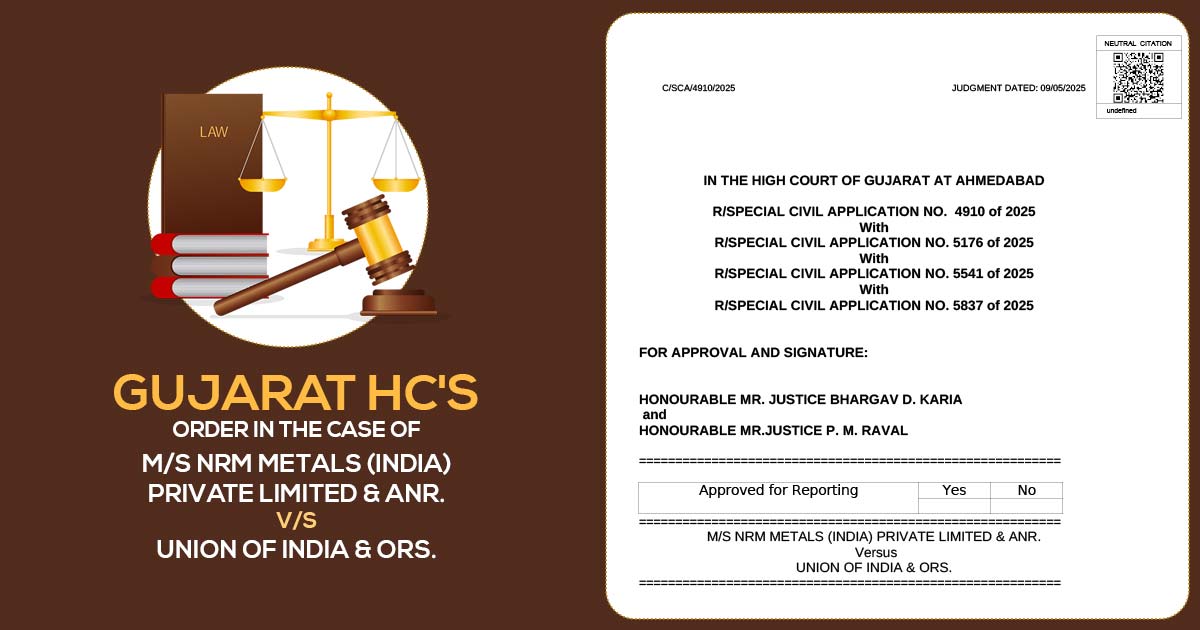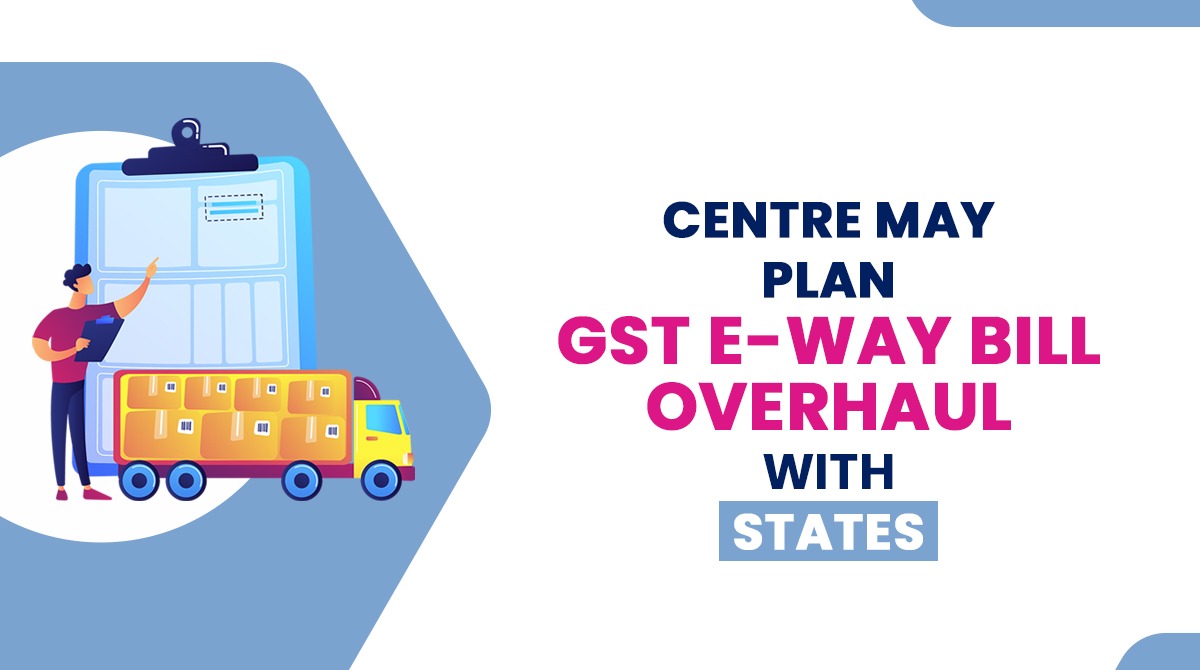
The Gujarat High Court, in a ruling for State Goods and Services Tax (GST) administrations, ruled that the lack of a Document Identification Number (DIN) on summons, notices, or provisional-attachment orders issued via State GST officers does not make those instruments invalid.
NRM Metals (India) Pvt Ltd and its director, who filed the writ petitions, have been dismissed by the Division Bench of Justice Bhargav D. Karia and Justice P. M. Raval, who contested a series of enforcement measures carried out after an investigation dated 6 March 2025.
U/s 67 of the Central and Gujarat Goods and Services Tax Acts, the applicant, NRM Metals, was investigated on the suspicion of claiming ineligible GST ITC.
Investigators blocked the company’s ITC ledger, provisionally attached its sundry debtors and bank accounts, and issued summonses demanding production of books of account.
All such discussions were invalid, the company cited that none bore the DIN obligated via Central Board of Indirect Taxes and Customs (CBIC) Circular No. 37/2019, and also argued that the attachment was not legal as it had been signed by an Assistant Commissioner instead of the Commissioner.
The bench, refusing the objection of DIN, said that Circular 37/2019 is addressed only to the commissioners and officers of the Central tax administration. The Gujarat GST commissionerate, the GGST Act, or its rules define a DIN system that does not issue any parallel circular.
“Circular No. 37 of 2019 cannot be said to be applicable to communications issued by State Tax authorities,” the judges wrote, citing that there is currently “no mechanism” in the state framework to generate DINs.
The court said while rejecting the claim of the applicant that only the Commissioner can sign a provisional attachment order. It ruled that the Commissioner of State Tax is a “proper officer” u/s 2(91) of the CGST Act and may delegate his functions u/s 5(3) to subordinate officers.
The bench directing its earlier decision in Nathalal Maganlal Chauhan v. State of Gujarat, discovered that a 15 January 2018 notification validly assigned provisional-attachment authorities to Deputy and Assistant Commissioners; thus, the attachment against NRM Metals was intra vires.
The judges, while disposing of the petitions, allowed the company to file “transaction-specific objections” — including its argument that duplicate e-way bills arose from legitimate “Bill-to-Ship-to” arrangements — before the investigating officer. Any such representation, they directed, must be decided “expeditiously and preferably within two weeks” of filing.
The Gujarat High Court, by making a firm line between Central and State administrations, specified that the state legislatures should independently choose a DIN structure if they desire to extend the traceability measures to their officers.
Till then, the taxpayers encountering state-level scrutiny could not depend on the absence of the DIN to invalidate the legislative measures.
| Case Title | M/S NRM Metals (India) Private Limited & ANR. vs Union of India & ORS. |
| Case No. | R/SPECIAL CIVIL APPLICATION NO. 4910 of 2025 |
| For Petitioner | MR Abhishe Kumar, And MR Maulik Vakhariya |
| For Respondent | MR Param Shah |
| Gujarat High Court | Read Order |









